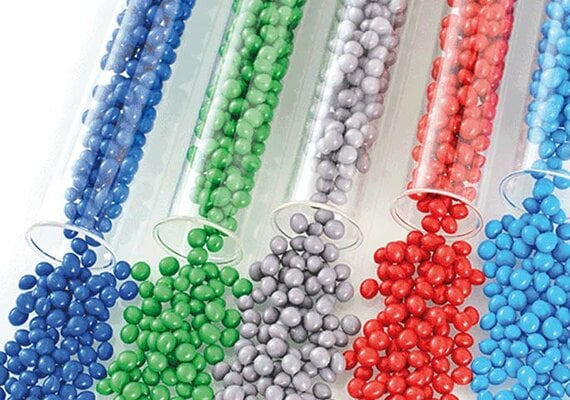Do you carry out material tests in your lab, institute, or research facility? Then you have come to the right place.
We recently visited KRAIBURG TPE’s base in Waldkraiburg, Germany, where we spoke to laboratory manager Robert Klier about the work he does. The company produces thermoplastic elastomers which are used to manufacture all kinds of products, such as toothbrush handles, children’s toys, or gearshift levers in cars. The granulate material used to make these products must itself undergo material testing, often in conjunction with other materials such as greases.
These material tests are carried out in drying and heating chambers under various conditions, such as high or changing temperatures. In our interview, the laboratory manager said: “Standard tests in a drying and heating chamber last between 24 and 72 hours at temperatures varying from 70 to 150 °C.” These tests check the quality of the material. The raw materials used by KRAIBURG TPE are also stress-tested in various material tests in BINDER chambers. Klier, the lab manager, has had such good experiences with BINDER chambers that he also uses a dynamic climate chamber and a vacuum drying chamber alongside 16 drying and heating chambers.
Many materials are sensitive to certain conditions, such as humidity and heat. When testing thermoplastic elastomers, it is important to make sure that the interference factors do not result in any changes. This is why the material tests are so important for the Bavarian company, as it needs to demonstrate that the material samples do not change over the course of the different testing procedures.
As part of this, it is also vital to make the distinction between destructive material tests and non-destructive testing procedures. As you might expect, destructive testing procedures involve changing or attacking the material surface, for example. In non-destructive testing procedures, the quality of a test material is checked without damaging the material itself. The latter procedure is the one used by KRAIBURG TPE to carry out its material tests.
Are you keen to find out which drying or climate chamber is right for the type of testing you want to do? Our interactive product finder will help you. Once you have answered a few questions, such as the materials you want to test, we will give you a specific recommendation so you can request that chamber directly.
